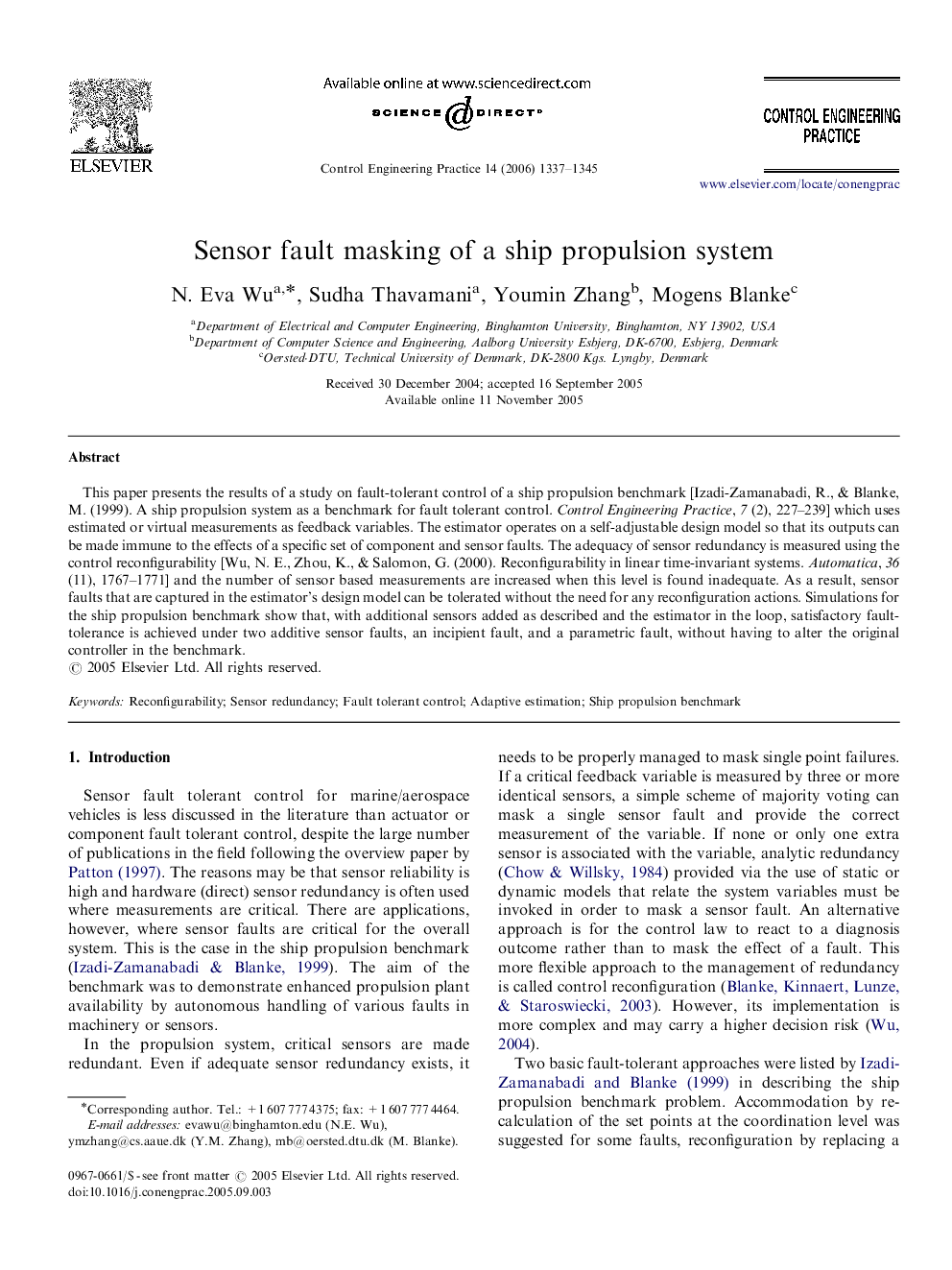| Article ID | Journal | Published Year | Pages | File Type |
|---|---|---|---|---|
| 700658 | Control Engineering Practice | 2006 | 9 Pages |
This paper presents the results of a study on fault-tolerant control of a ship propulsion benchmark [Izadi-Zamanabadi, R., & Blanke, M. (1999). A ship propulsion system as a benchmark for fault tolerant control. Control Engineering Practice, 7 (2), 227–239] which uses estimated or virtual measurements as feedback variables. The estimator operates on a self-adjustable design model so that its outputs can be made immune to the effects of a specific set of component and sensor faults. The adequacy of sensor redundancy is measured using the control reconfigurability [Wu, N. E., Zhou, K., & Salomon, G. (2000). Reconfigurability in linear time-invariant systems. Automatica, 36 (11), 1767–1771] and the number of sensor based measurements are increased when this level is found inadequate. As a result, sensor faults that are captured in the estimator's design model can be tolerated without the need for any reconfiguration actions. Simulations for the ship propulsion benchmark show that, with additional sensors added as described and the estimator in the loop, satisfactory fault-tolerance is achieved under two additive sensor faults, an incipient fault, and a parametric fault, without having to alter the original controller in the benchmark.
